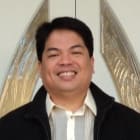commentary Commentary
Commentary: ‘He can do no wrong’ Rodrigo Duterte, the president Filipinos still love
Halfway into Rodrigo Duterte’s presidential term, his air of invincibility is unpunctured, bolstered by a larger number of allies in the senate, says Michael Henry Yusingco.
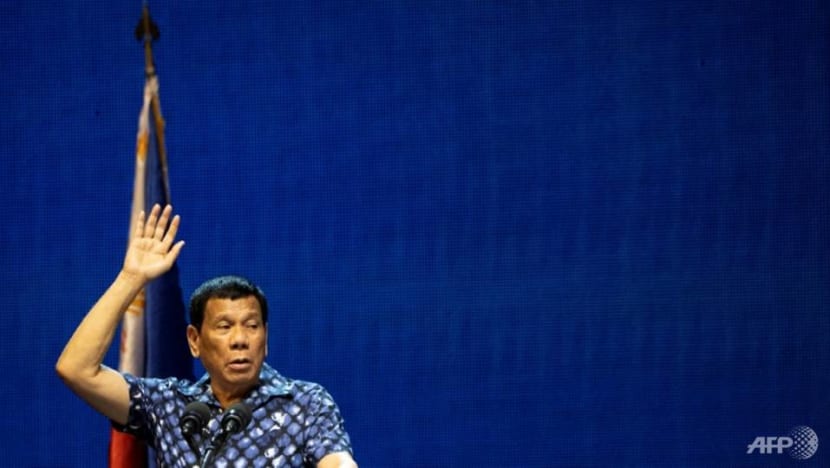
Philippine President Rodrigo Duterte. (Photo: AFP/Noel CELIS)
MANILA: The perception of President Rodrigo Duterte these days is that in the eyes of Filipinos, he can do no wrong.
Duterte recently declared that Chinese fishermen can continue fishing plying their trade in the exclusive economic zone (EEZ) of the Philippines, a move that many say disregards the explicit mandate in the 1987 Constitution to reserve its use and enjoyment exclusively to Filipino citizens.
“We’re friends”, Duterte had added in a speech in late June, saying that he might allow China to fish in Philippine waters.
His remarks touched a raw nerve, when Filipinos are still outraged from the sinking of a small Philippine fishing boat by a steel-hulled Chinese trawler, and public frustration over his embrace of China is growing.
HE CAN SAY AND DO WHAT HE WANTS
Filipinos have a history of unseating presidents via huge mass movements. Just think about the People Power Revolution in 1986 that led to the ouster of Ferdinand Marcos and EDSA Dos in 2001 that forced Joseph Estrada to resign less than halfway into his six-year term.
But Filipinos did not fill up the streets of Manila, like the people of Hong Kong have done these past weeks to redress wrongs and fight for their rights.
READ: Hong Kong protests may have crossed the point of no return, a commentary
READ: The noose around Hong Kong is tightening, a commentary
Clarifications from his spokesman that the President has no intention of walking back from the country’s position on asserting sovereignty over its EEZ might have soothed detractors.
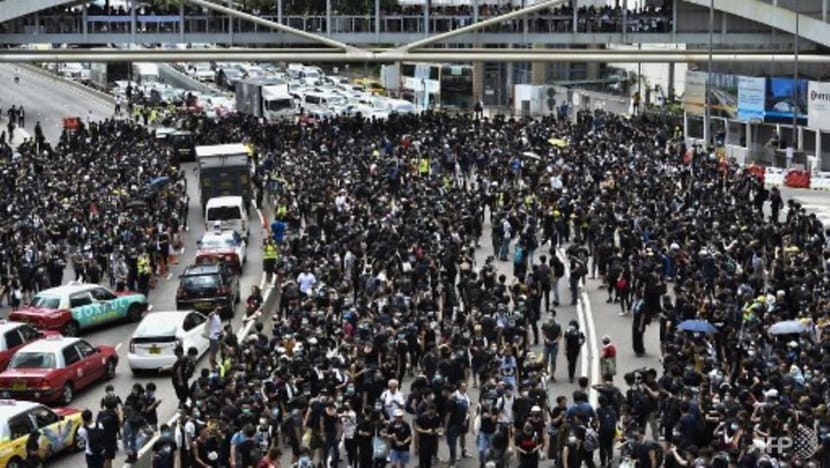
But Duterte has traditionally enjoyed strong approval ratings.
He has also seen a new approval rating high of 79 per cent, according to polling company the Social Weather Stations, buoyed by support from Mindanaoans, a month after the formation of an autonomous Bangsamoro government. And his candidates have won big in the Philippines’ midterm elections.
Indeed, it would seem Duterte can do anything and say anything he wants.
And halfway into his presidential term, his air of invincibility is unpunctured, bolstered by a larger number of allies in the senate.
SWEEPING POWERS
However, Duterte’s personal magnetism and popular support obscure the risk that a Philippine president can abuse the sweeping powers given under the Philippine constitution. These can become powerful tools to shut down dissent and wave off opposition.
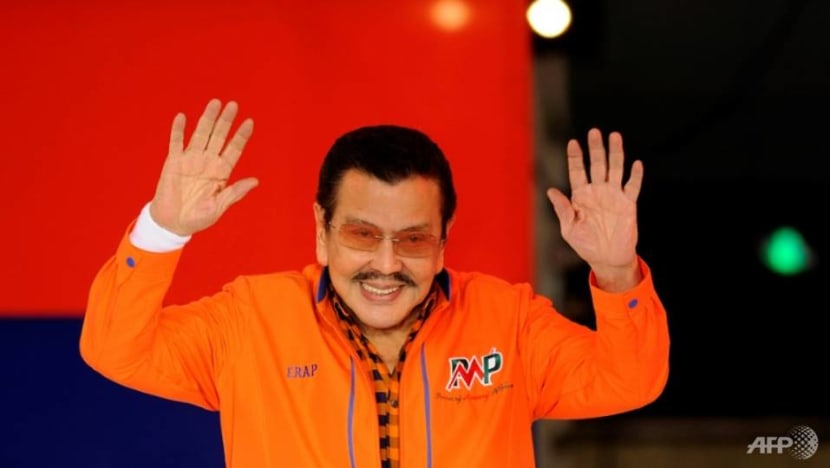
What this means is that the powers of the President cannot be said to be limited only to the specific powers enumerated in the Constitution.
Some say the risks of an overreach by Duterte is a stretch of the imagination. But let’s not forget what he recently said when responding to questions about possible impeachment for his pattern of persecution and assault on free speech.
Me? Will be impeached? I will jail them all
MUTED CONCERNS
Many Filipinos are all too willing to look past Duterte’s combative stances and disregard for human life.
After a years-long harsh crackdown under a campaign against crime, drugs and corruption, the mood in the capital has shifted. The fear of reprisal has led many to avoid voicing grievances over Duterte’s policies.
The detention of Senator Lila De Lima, the harshest critic of his War on Drugs agenda, and the targeted persecution of journalist Maria Ressa, arrested twice this year by his administration, are stark reminders of the repercussion of being overtly critical of government personalities and policies alike.
Far too many Filipinos are easily gratified by the strong Philippine economy, easing inflation and lower unemployment.
READ: The good, the bad and the ugly of Rodrigo Duterte’s war on drugs. a commentary
Instead of holding the government to account over many of its disturbing clampdowns, most are happy to carry on with their lives when there aren’t immediate hot-button challenges that impact them directly and negatively.
MUST GO BEYOND SOCIAL MEDIA
If Filipinos want their voices heard, then they must engage their representatives in government. But most Filipinos are content to let concerns seethe on social media.
According to the latest Social Weather Stations report, 30 million Filipinos use at least one social media platform to express political views.
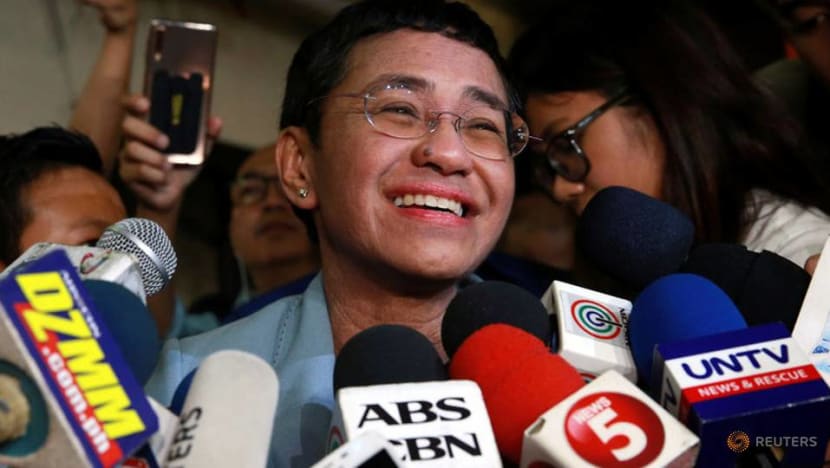
Filipinos rank first globally in internet usage with an average daily screen time of 10 hours. And almost half of the adult population use the internet. For the past four years the Philippines has topped social media use worldwide.
But the use of social media has not led to the galvanisation of collective action or productive discourse that shapes public policy. In fact, there is also little debate among political leaders from various parties about how to improve the lot of the average Filipino.
READ: Rodrigo Duterte is far from the President he promised to be, a commentary
CNN Philippines’ Digital Disinformation Tracker research project found that online discourse among various political groups during the recent midterm election was very “toxic”.
Negative campaigning, fake news, and other modes of disinformation on the web has prevented Filipinos from having an honest-to-goodness deliberation of urgent issues that impact them.
The chaos and toxicity of online political discourse has enabled the Duterte narrative that Duterte is the best leader who can get things done to dominate social media.
Such a narrative has been most effective with youths, aged 18 to 35, who make up a third of the 61 million strong electorate.
Duterte’s massive influence on social media has also played a big part in the electoral victory of many of his allies, further strengthening the belief that his strongman leadership style is necessary to keep the country on its development trajectory.
THE REIGN CONTINUES
Behind the victory enjoyed by Duterte’s allies in the midterm elections and the sentiment that the man can do no wrong, the worry is that the president has now greater leverage to push through a controversial and all-encompassing legislative agenda which will change the complexion of Philippine society.
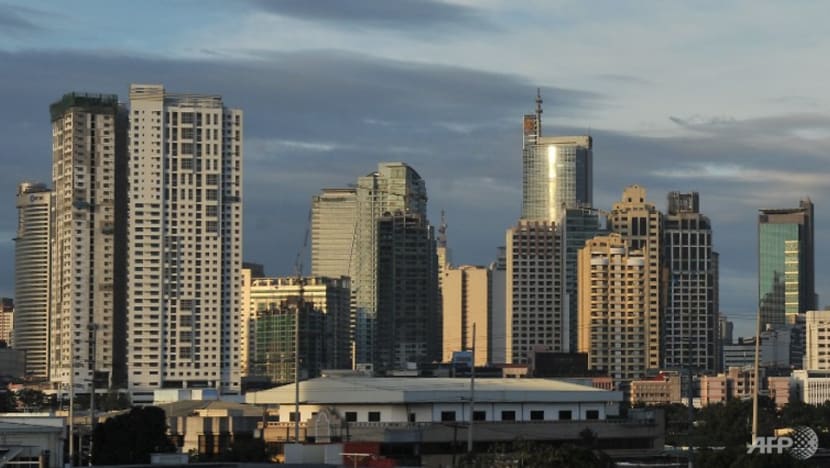
Let’s not forget he has proposed reforms to reinstate the death penalty, lower the age for criminal liability and shift towards a federal form of government.
But the reality also is that there are few figures in the wings of the opposition who can offer a more inspiring and unifying vision of the country’s future.
All these should culminate in a wake-up call to reconsider how much executive power is given to the Philippine President through the constitution.
Anything short of this will not stop the election of leaders who promise reform and progress but practise strongman politics premised on fear and power.
Michael Henry Yusingco is a legislative and policy consultant, law lecturer and a non-resident research fellow at the Ateneo School of Government.








